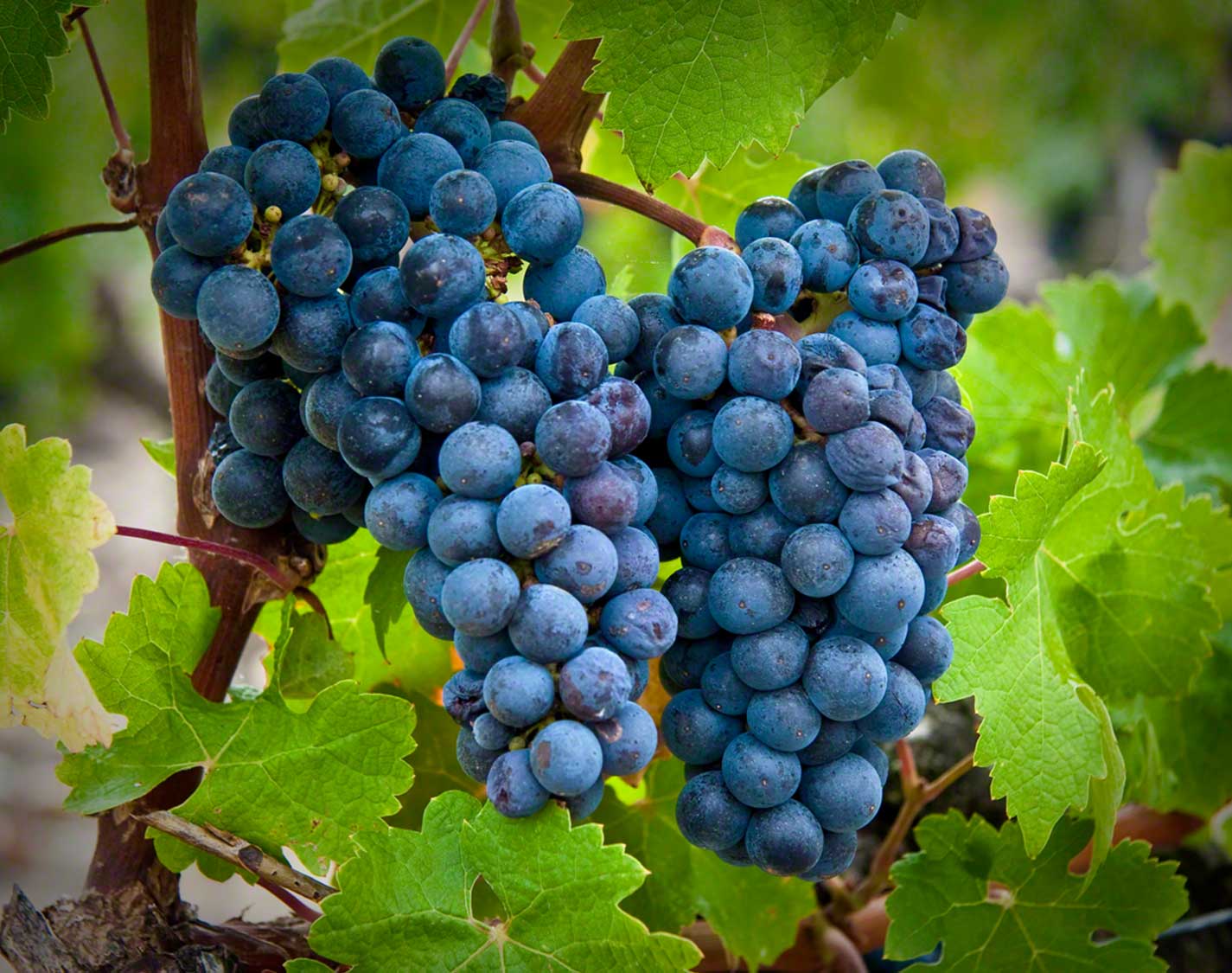We continue our discussion of grapes with a juicy bit of culinary history that begins in 1861, when Charles K. Landis purchased 30,000 acres of agricultural land in New Jersey with the intention of creating an alcohol-free “utopian” society for himself and like-minded families who were willing to help farm the countryside and construct his “temperance town.” Landis eventually named the town Vineland, because after discovering the soil and climate were ideal for growing grapes, the entrepreneur started selling 20-acre parcels to numerous Italian grape growers … who quickly arrived and started growing grapes … to use in the production of wine … a fermented drink … containing alcohol … in a temperance town. See, fact is always stranger than fiction!
 Vineland ultimately became famous for the grape adventures of Thomas Welch, a Wesleyan Methodist minister who lived a very full and colorful life. He was ordained at the age of 19 and, because the Methodists were staunchly opposed to slavery in America, Welch became active in the Underground Railroad transporting escaped slaves from the South into Canada.
Vineland ultimately became famous for the grape adventures of Thomas Welch, a Wesleyan Methodist minister who lived a very full and colorful life. He was ordained at the age of 19 and, because the Methodists were staunchly opposed to slavery in America, Welch became active in the Underground Railroad transporting escaped slaves from the South into Canada.
Welch preached the Gospel until his voice played out — literally — and then went to medical school in New York. After becoming a doctor, and later specializing in dentistry, he moved to Vineland and set up a practice. Vineland was home to a large Methodist community, and Methodists were as staunchly opposed to the sale and consumption of alcohol as they were to slavery. However, since wine is served during communion services, this posed an interesting problem for the church.
Prior to the arrival of Welch, the church substituted grape juice, made by adding water to a juice concentrate, for wine. But in 1869, the good doctor invented a method of pasteurizing grape juice to stop the fermentation process. He then formed a company to manufacture “Dr. Welch’s Unfermented Wine,” and persuaded local congregations to use his non-alcoholic “wine” in their communion services. So, next time you see a jar of Welch’s grape  jelly, or a bottle of the company’s grape drink, remember that behind their label there’s a history involving quite a colorful fellow!
jelly, or a bottle of the company’s grape drink, remember that behind their label there’s a history involving quite a colorful fellow!
And the next time you think about wine, consider this: The Bible does not prohibit the drinking of wine! Now, before we go any further, please allow us to state several things in our defense: first, we understand that people tend to be divided over the issue of alcohol; the consumption of alcoholic beverages can be habit forming, leading to overindulgence and drunkenness; and in such cases, alcohol has destroyed careers, torn families apart, and claimed countless lives. Alcohol has a horrible reputation for being a catalyst for evil. So, If you’re teetotalers, just as we ourselves are, then we applaud you. But the fact remains, alcohol was present in the wine consumed throughout the Bible.
Wine — fermented wine — was enjoyed during the Jewish holidays designated as “The Feasts of the Lord.” (Leviticus 23:2-4) Furthermore, Jesus Christ chose to perform His first miracle at a wedding feast in Cana by turning water into wine. In doing so, Christ answered the anxious social concerns of His mother Mary, by saving His hosts from an embarrassing situation: running out of wine during a celebration — a definite no-no in a culture that viewed wine as an integral part of life.
Wine was so prevalent in Biblical times, that Jesus used the subject of wine to illustrate several spiritual lessons. For instance, He stated, in Matthew 9:17, that new wine (symbolic of the Holy Spirit and salvation by grace through Christ) should never be stored in an old wineskin (symbolic of an inflexible, legalistic, usually hypocritical mindset that refused to accept the teachings and saving work of the Savior) — because the old wineskins would burst! Why? Because gases are released during the fermentation process that produces alcoholic wine; but new wineskins were “stretchy” enough to expand like a balloon. An old wineskin had lost its elasticity, and could no longer expand; instead, it would burst from the pressure of the fermentation gases produced by new wine.
So we have this bit of science, along with several Biblical references, as proof that the wine being discussed in the Word of God is of an alcoholic nature — and not just grape juice. Alas, as every wino knows, too much of the “grape” leads to a dissolute life. Proverbs 20:1 states, “Wine is a mocker, strong drink a brawler, and whoever is intoxicated by it is not wise.” (NASB) Anyone who’s had a little too much to drink can probably attest to this truth: alcohol lowers inhibitions, diminishes good judgement, and loosens the tongue. An overindulgence in strong drink can cause a person to lose control. When you’re “under the influence,” it’s the alcohol that’s calling the shots.
 The Apostle Paul commands us not to overindulge in anything — or to lose “self-control,” which is one of the fruits of the Spirit we’re to cultivate. He writes, “…Don’t get drunk with wine, which leads to reckless actions, but be filled by the Spirit.” (Ephesians 5:18 Holman) Sound words!
The Apostle Paul commands us not to overindulge in anything — or to lose “self-control,” which is one of the fruits of the Spirit we’re to cultivate. He writes, “…Don’t get drunk with wine, which leads to reckless actions, but be filled by the Spirit.” (Ephesians 5:18 Holman) Sound words!
Remember that Christ compared the Spirit of God to “new wine”? That’s because the abundant life God grants each believer can be “intoxicating” — as long as we’re abiding in Him! (John 15:5) It’s the only “wine” we really need. It’s impossible to overindulge in it, but even when we do, we don’t have to deal with early-morning hangovers, or worry about the stupid things we did the night before. We don’t lose control, but we do stay tuned in to God and ready for every good work. (Titus 3:1) See “God is Grape!”
In moderation, wine is okay. Alcoholic abuse is not; nor is letting strong drink control our lives. God set us free; let’s stay that way!


 When God states “I am the vine,” He is reminding us that He is the Creator and the Provider of every good thing. He’s our Deliverer, our Healer, our Shepherd, our Peace, our Comfort in times of trouble, and the God who provides everything we need. And He tells us we are to be like the branches used in the vineyards, to lift the grapevines from the ground. In other words, we are to “lift Him up”!
When God states “I am the vine,” He is reminding us that He is the Creator and the Provider of every good thing. He’s our Deliverer, our Healer, our Shepherd, our Peace, our Comfort in times of trouble, and the God who provides everything we need. And He tells us we are to be like the branches used in the vineyards, to lift the grapevines from the ground. In other words, we are to “lift Him up”! Abiding in God also means being humbly and wholly dependent upon Him. Our own efforts are generally pretty pathetic anyway. But God declares that if we remain with Him, confidently relying on His strength and abilities, we will bear “much fruit”! How? Remember the illustration of the branch wrapped in grape vines? The vines are bearing grapes the size of plums, but since we can no longer determine where the branch ends and the vine begins, it looks like the branch is heavy with delicious fruit!
Abiding in God also means being humbly and wholly dependent upon Him. Our own efforts are generally pretty pathetic anyway. But God declares that if we remain with Him, confidently relying on His strength and abilities, we will bear “much fruit”! How? Remember the illustration of the branch wrapped in grape vines? The vines are bearing grapes the size of plums, but since we can no longer determine where the branch ends and the vine begins, it looks like the branch is heavy with delicious fruit!